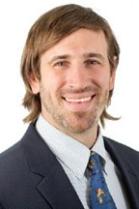Overview
The Behavioral Health Clinic (BHC) was developed in early 2022 as a specialty resource for medical residents and fellows. Residents and fellows are exposed to extraordinary levels of stress during training. The downstream effects can emerge in various forms and intensities, and include challenges with social isolation, relationship problems, burnout, sleep difficulties, and mental health symptoms (e.g., mood, anxiety, post-traumatic stress disorder, alcohol use problems).
In the BHC, we use cognitive behavioral therapy approaches to address problems related to stress and mental health. We operate on a patient-centered foundation, in which therapist and client collaborate to identify goals and develop skills and actions needed to move toward goals. We take a non-stigmatizing position that, at some point in their lives, all people benefit from seeking help to balance the demands of work/life/stress/mental health.
The BHC is a confidential and HIPAA-protected service, and residents or fellows may self-refer. Those who carry Dartmouth Hitchcock Medical Center medical insurance will not incur any out-of-pocket expense for utilizing BHC services.
Appointment scheduling
To schedule an appointment, please call 603-650-7075 or email resident.wellbeing@hitchcock.org.
Appointments are available virtually or in person.
Meet the provider: Andrew Smith, PhD
Following a 4-year enlistment and combat deployments in the U.S. Army (2001-2005), Andrew enrolled at Penn State where he completed his undergraduate degree in rehabilitation science (2005-2008). He completed a Master’s degree in trauma psychology at the University of Colorado (2009-2011), and a PhD in clinical psychology at Virginia Tech (2011-2017). During his PhD, he pursued extensive training in cognitive behavioral therapy approaches, with complementary research on how humans adapt optimally to stress and trauma. He completed his clinical psychology residency/internship at the VA Salt Lake City Healthcare System (2016-2017), followed by a postdoctoral research fellowship in cognitive neuroscience at the University of Utah School of Medicine (2017-2018). Following his postdoc, Andrew transitioned to a faculty position at the University of Utah School of Medicine (2018-2022). At the University of Utah, he founded and directed the Occupational Trauma Program, a treatment and research operation for frontline workers (emergency responders, firefighters, law enforcement, healthcare).
Andrew transitioned to Dartmouth Hitchcock Medical Center in January 2022. He was hired to improve the clinical mental health care and well-being of medical residents and fellows. His role involves direct provision of therapy and assessment for graduate medical education residents and fellows, as well as engagement in applied research to improve the well-being of healthcare workers broadly. In his role, he combines clinical and research expertise in population health, evidence-based treatments, and contexts characterized by chronic stress and trauma.
Other resources
For additional information and resources on well-being, please view the well-being resources for residents and fellows guide (PDF).
